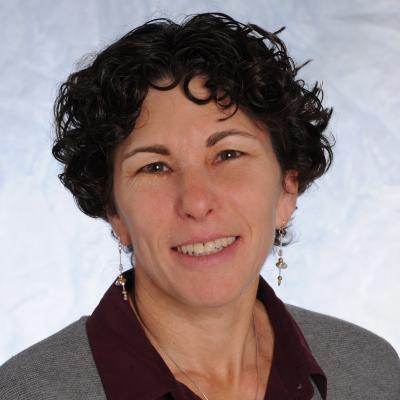Heller Research Team Receives $2 Million to Build Next Generation of the Child Opportunity Index
FOR IMMEDIATE RELEASE
September 28, 2021
WALTHAM, MASS—the Institute for Child, Youth, and Family Policy, led by Professor Dolores Acevedo-Garcia, has received an 18-month, $2 million grant from the W.K. Kellogg Foundation to build the next generation of the Child Opportunity Index (COI). The COI is a key component of her team’s longstanding project, diversitydatakids.org, a comprehensive research program and indicator database on child wellbeing and opportunity with a focus on racial/ethnic equity across multiple sectors (e.g., education, health, and housing) and geographies in the United States.
Principal Investigator (PI) Acevedo-Garcia and her team have been mapping the geography of opportunity in the United States for over a decade, launching the pioneering Child Opportunity Index (COI) in 2014, in partnership with the Kirwan Institute for the Study of Race and Ethnicity at The Ohio State University. In January 2020 the team launched the Child Opportunity Index 2.0, with improved methodology and significantly expanded data. Earlier this year they unveiled Mapping Child Opportunity, an interactive mapping platform that allows users to map the geographic distribution of neighborhood opportunity for children in the U.S. by race/ethnicity and dig deep into the data for states, metros, individual census tracts or the entire nation.
Their analysis has shown significant variation in opportunity levels across the U.S. and within metro areas and a consistent pattern of racial and ethnic inequity. Black and Hispanic children are much more concentrated in very low-opportunity neighborhoods: across the 100 largest U.S. metros, Black children are 7.6 times and Hispanic children 5.3 times more likely to live in very low-opportunity neighborhoods than White children. Acevedo-Garcia explains, “Neighborhood quality is about more than poverty. Black and Hispanic children tend to live in the neighborhoods that also have worse schools, parks, housing—everything that makes a good neighborhood environment for a child.”
The new grant will enable the team to update the COI and build the infrastructure needed for annual or bi-annual updates. Regular updates will ensure that the COI will continue to serve as the best estimate of current neighborhood opportunities for children across the U.S.
For Acevedo-Garcia and her team, the COI forms part of what she calls the “data-for-equity pipeline,” her vision and approach for ensuring that the data and analysis they produce lead to improved equity for children. The COI is being used by policymakers, nonprofit leaders and community groups across the healthcare, early childhood, urban planning and housing sectors among others.
“While we anticipated the utility of a comprehensive index of children’s neighborhood conditions for all U.S. neighborhoods, demand for the index has been greater than expected, reflecting an unmet need for child-focused neighborhood level data and analysis,” says co-PI Clemens Noelke. “We continue to observe rising demand for COI 2.0 data and steady growth in the number of publications and equity-focused applications utilizing the index.”
"The Child Opportunity Index has become a vital data tool for researchers, policymakers and communities across the nation that are committed to improving children's well-being and addressing inequities in neighborhood conditions," says Heller Dean David Weil. "I am delighted that this award will permit the COI team to continue improving this important resource."
“As we seek to ‘build back better’ in the wake of the Covid pandemic, there is a growing realization that addressing racial and ethnic inequities requires a deep understanding of the structural drivers of those inequities,” says Acevedo-Garcia. “Neighborhoods are critical to child health and wellbeing, and the differences in opportunity children experience in their neighborhoods are the product of decades of unequal investments and policies designed to preserve residential segregation. The COI allows stakeholders to understand existing conditions and monitor progress as they work to improve neighborhood conditions.”
###
The Institute for Child, Youth and Family Policy (ICYFP)
ICYFP is dedicated to conducting and disseminating innovative research on the health and development of children and their families. The Institute’s flagship project, diversitydatakids.org, provides hundreds of measures of child wellbeing and U.S. policy analysis, with a focus on racial and ethnic equity. Learn more at: heller.brandeis.edu/icyfp/
The Heller School for Social Policy and Management at Brandeis University
Heller is an internationally-renowned social policy school and research institution located at Brandeis University in Waltham, Mass. Founded in 1959, Heller offers a doctoral degree in social policy and six master’s degree programs. Heller scholars conduct $19 million a year in sponsored research at 10 research centers and institutes, covering policy areas such as asset inequality, disability policy, behavioral health, and children, youth and families. Learn more at heller.brandeis.edu


